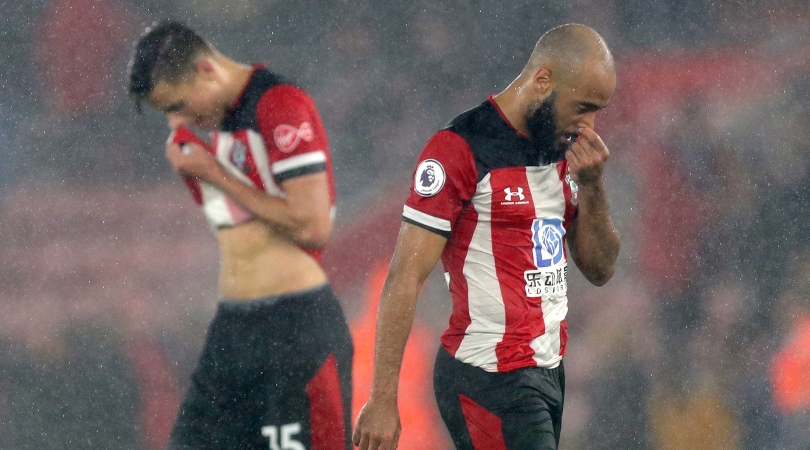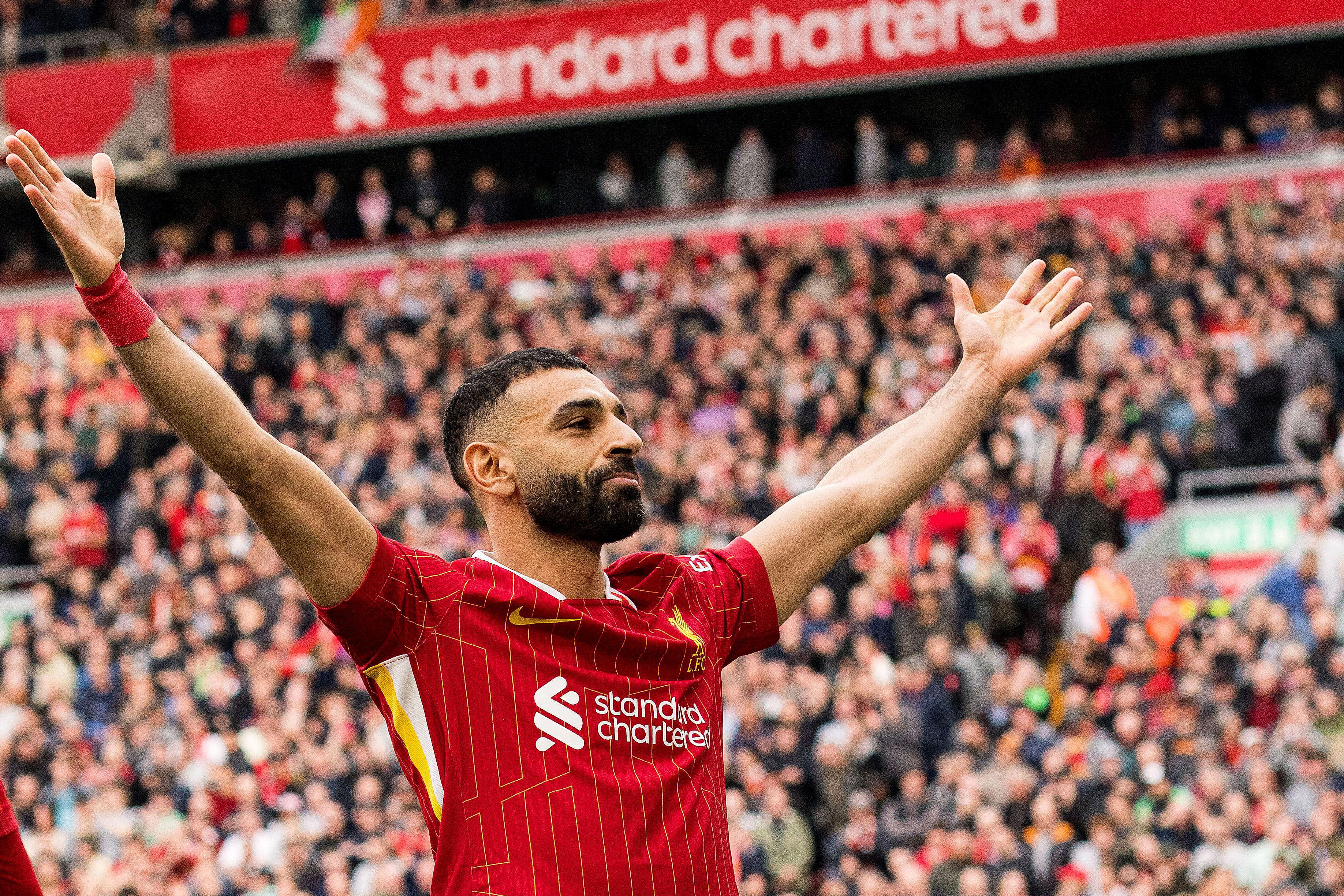Why Southampton's 9-0 record defeat might be even worse than Ipswich's
Ralph Hasenhuttl's side aren't in the midst of a crisis, or an inevitable relegation. But that might make the defeat to Leicester harder to recover from

The 1994/95 season was not a good year for Ipswich Town. They finished 22nd in the Premier League, a full 21 points from safety. They conceded 93 goals from 42 games, managed just 36 of their own and, in a detail which describes that campaign's tone, their top-scorer was a Danish centre-half.
No, it wasn’t a vintage year, but everyone remembers it because that was the season in which they lost 9-0 to Manchester United, on 4 March 1995. It was, until last Friday night, the worst defeat in the competition’s history, and what happened after offers a vivid insight into how difficult it can to be to heal from such humiliation.
They lost their next six games in a row, they didn’t score again for over a month, and they didn’t win another point until April. Southampton are a much better side than Ipswich, that’s certainly true, but maybe that makes what Leicester inflicted upon them worse?
Southampton are not cannon fodder. They’ve been underperforming for a few years and that makes their home defeats unsurprising, but they just don’t fit the profile of a team who should be conceding nine times on their own pitch. They aren’t in the midst of a crisis, they aren’t technically overmatched, and they aren’t being mismanaged.
It wasn’t so long ago that Gus Poyet’s Sunderland conceded eight times at St Mary’s and that was, if not expected, then entirely believable. They were dysfunctional. They were badly managed. The players in that team were constantly flirting with calamity.
But not Southampton and what they face next is harder for that.
It’s worth dwelling on what that kind of loss might feel like and, more importantly, what kind of intrusion it must make on a player’s psyche and how damaging it would be.
Get FourFourTwo Newsletter
The best features, fun and footballing quizzes, straight to your inbox every week.
Consider it from the broadest angle: every Southampton player who appeared on Friday night has just become the answer to a pub quiz question in 10 years’ time. Maybe Ryan Bertrand will find his way into Trivial Pursuit or to the gimme rounds of Who Wants To Be A Millionaire.
"Who was the Patient Zero responsible for this terrible trauma? "
One of the biggest differences between the respective nine-nils is also the environment in which they occurred. Ipswich took their battering in a pre-internet age. It was also a Saturday 3pm game, which wasn’t live on television and which, most likely, won’t have been seen, even in highlight form, by anyone under the age of 30.
But Southampton’s helplessness was laid bare, across an entire 90 minutes and in front of a peak-time audience. That won't fade in nearly the same way or anything like as quickly; all nine of those goals are and will remain immediately available to anyone who wants to watch them.
And what does that do to a player? How does that affect his basic confidence and the core convictions which allow him to pass, tackle and shoot. How does he make instinctive decisions with any faith at all after, ultimately, having his identity as a footballer challenged by that kind of adversity?
While an average defeat washes off easily enough – and can maybe be attributable to luck, an error by a teammate or a refereeing decision – this one won’t. This was the sort that leads to consoling text messages from close family members. Or which leads to confrontation between players and supporters in city centres.
Perhaps it begins with a comment overheard in a supermarket, or something said to a player when he's out with his son or daughter. A 9-0 defeat must be a highly invasive experience with all sorts of challenges - big questions to answer, for instance, like what a season can be after such an ugly blemish, or how the head-coach copes with having that indelible stain on his CV. These are deep themes.
The Southampton players will say all the right things in response and they’ll look appropriately wounded when they do. They’ll talk of putting things right, of repaying debts to supporters and the need for togetherness. They’ll mean every word, too.
They’ll want to cleanse themselves quickly and give performances full of obvious, unquestionable commitment. They'll want to sweat, to bleed, and to bruise and break, and to do all of that as quickly as possible.
But players can’t just run defeats like that out of their system. There’s no detox for shame. This is the sort of loss which haunts footballers and coaches and the kind which, unfortunately for Southampton, has to be chased from the corridors repeatedly over many, many months. For anyone paid to play the game, this is the ultimate nightmare.
While you're here, why not take advantage of our brilliant subscribers' offer? Get the game's greatest stories and best journalism direct to your door for only £9.50 every quarter. Cheers!
NOW READ...
GUIDE Premier League live stream best VPN: how to watch every game from anywhere in the world
New features you'll love on FourFourTwo.com
Seb Stafford-Bloor is a football writer at Tifo Football and member of the Football Writers' Association. He was formerly a regularly columnist for the FourFourTwo website, covering all aspects of the game, including tactical analysis, reaction pieces, longer-term trends and critiquing the increasingly shady business of football's financial side and authorities' decision-making.

